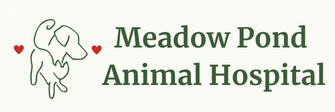Preventive Care for Dogs
Commit to a lifetime of health.
Preventive care is an essential part of keeping your dog happy and healthy. It will give you peace of mind and increase the odds of detecting underlying health conditions before they become advanced and expensive.
Physical exams are just as important for your pet as they are for you and me. They are probably even more important because your dog or cat can't tell you when they need to go to the doctor! There may be signs from your pet that they are sick, such as laziness, lack of appetite, and change in demeanor, among others. If you notice these symptoms you should schedule an appointment with your vet. Even if your pet seems to be perfectly healthy, you should bring them in for a physical exam at least once a year, and more often if they are older. Your pet's exam will be very similar to a physical you would have, including checking the ears, eyes, mouth, internal organs, and skin and coat.
At your dog’s annual exam, your veterinarian will answer any questions you may have and discuss other services that could improve their overall health such as spay or neutering, microchipping, and dental care.
Canine Vaccines
DA2PPV
This vaccine, also known as the "canine distemper vaccine", is a core vaccine. Vaccinations typically begin at around 8 weeks of age and consist of 2-3 follow-ups about 3 weeks apart. Your dog should also receive the vaccine every 1-3 years going forward. It protects your dog against the following 4 diseases:
- Distemper
This is a viral disease that is easily spread through direct contact and contact with bodily fluids or contaminated food and water. Puppies are the most susceptible to the disease and also have the highest mortality rate from severe cases or complications from the disease. Vaccinations have proven to be effective, so it is important to have your puppy vaccinated. The disease can be treated if contracted but requires quarantining your dog from other dogs for many months, and the disease can also result in some long-term health problems.
- Adenovirus
This is an upper respiratory infection that is very contagious and is characterized by a hacking cough and a foamy white discharge. This vaccine is required in most areas.
- Type 2
This is a highly contagious respiratory virus that can spread rapidly when an infected dog comes in contact with other dogs.
- Parainfluenza/Parvovirus
This disease is more commonly referred to as “parvo” and is one of the leading causes of viral infections in dogs. It is highly contagious and transmitted by direct or indirect contact with contaminated feces. There are cardiac and intestinal forms of the disease, both of which are fatal in most cases when left untreated. The vaccination is highly recommended.
Bordetella
Bordetella is a bacteria that can cause kennel cough which is highly contagious and spreads quickly if an infected dog comes into contact with other unvaccinated dogs. The Bordetella vaccine is typically given every 6 months. It is highly recommended for dogs with high levels of exposure. Kennels and grooming facilities often require this vaccine.
Leptospirosis
This disease is caused by a bacteria that is spread through infected animals' urine and thus may be found in standing water such as puddles and small ponds. This disease brings on symptoms of fever, vomiting, loss of appetite, and depression and it could lead to chronic kidney or liver disease. Although this is an optional vaccine, if your dog has exposure to standing water, it is highly recommended.
Lyme Disease
Lyme disease is transmitted by ticks. These small insects live in wooded areas and areas with tall, overgrown grass or brush. If you live in areas where these environments exist, it is smart to take proper precautions to prevent Lyme disease. The Lyme vaccine is extremely effective and is therefore recommended for all dogs in this area. The vaccine, along with proper flea and tick prevention, can greatly reduce the risk of your dog contracting Lyme disease. If your dog does become ill with Lyme disease, you will notice that the dog will walk with a limp or favor the area where the tick has bitten it. The tick needs to be removed, and you should consult your vet for proper treatment.
Coronavirus
Coronavirus is very similar to the intestinal form of parvovirus in its symptoms. It results in vomiting and diarrhea, mostly affecting puppies. The difference is that coronavirus, while still dangerous to your dog, is usually not fatal. For prevention keep your dog in clean conditions and be careful when around other dogs. Your dog can also be vaccinated for this disease, and it is usually good for their lifetime.
To schedule your dog’s annual exam, call us at (603) 253-7701 or request a dog exam appointment online.

